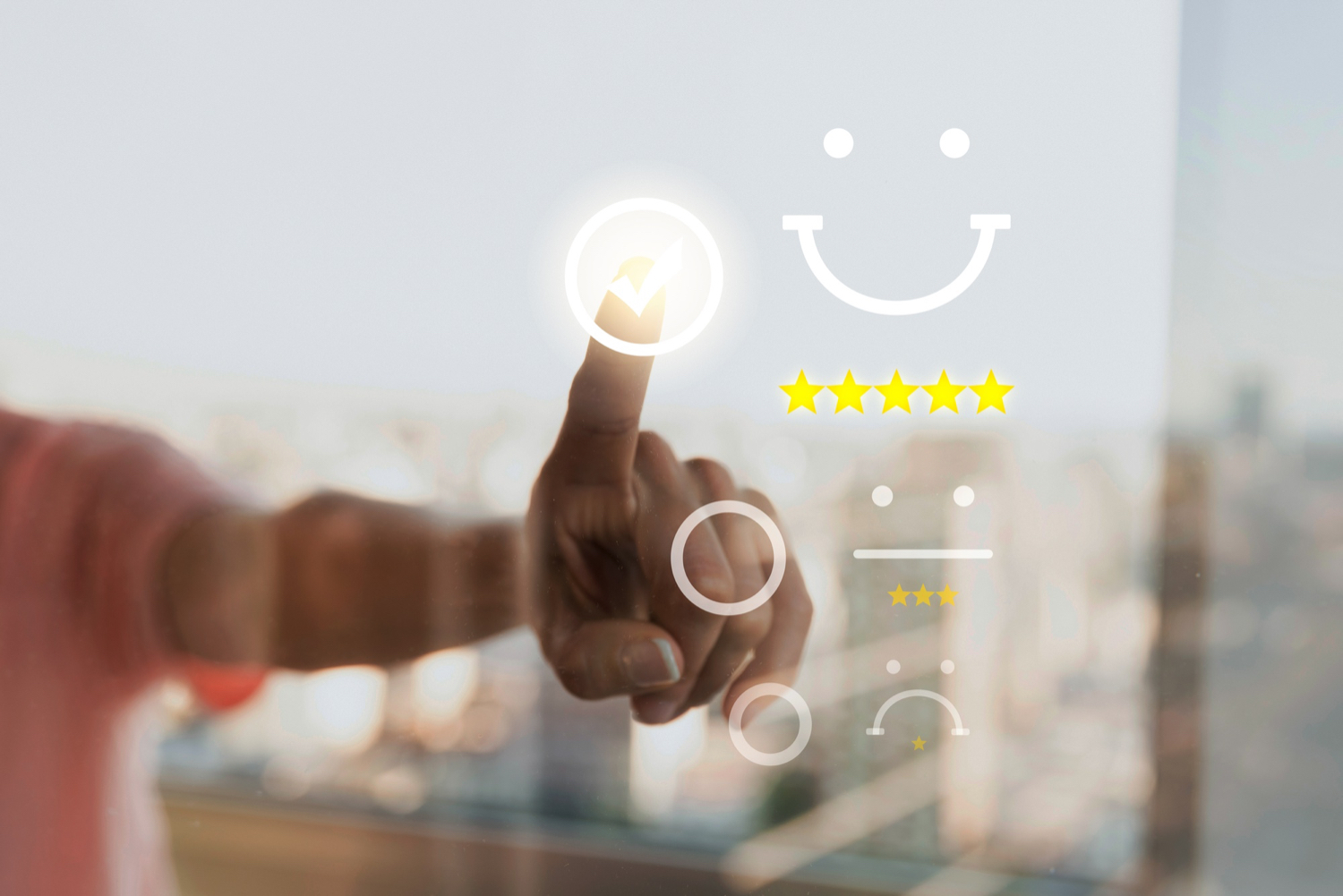Elevate your customer service game and propel your business growth! For a seamless transition and expert guidance, partner with Simply Contact.

ChatGPT has emerged as a game-changer in the realm of customer service, offering innovative solutions that have redefined the traditional approaches to client support. Introduced as a transformative tool, it possesses capabilities that were once deemed unattainable.
Both established corporations and emerging enterprises are leveraging ChatGPT to elevate their customer service. But what makes this tool a cornerstone for enhanced user engagement and support?
ChatGPT enhances customer service by efficiently handling various queries, including FAQs, easing the workload of human agents. Its 24/7 availability and options for free and premium versions ensure flexibility and accessibility for all users.
However, it's essential to consider the potential drawbacks associated with using ChatGPT in a customer service setting.
Stay with us to the end of this article to explore the pros and cons, ensuring you make an informed decision on whether ChatGPT is the right fit for your business needs.
Can I use ChatGPT for Customer service?
Certainly, ChatGPT can be employed for customer service. Many business leaders are already harnessing the capabilities of GPT-4 technology to enhance their customer support services.
The prevailing sentiment suggests that GPT could redefine the future of customer service. Predictions indicate that by 2025, chatbots could manage up to 95% of customer service interactions.
Therefore, not integrating ChatGPT into your strategic plans might place your business among the 5% perceived as lagging or "outdated."
Now, let's delve into how ChatGPT can elevate your customer service standards.
Addressing FAQs
Research indicates that nearly 40% of customer inquiries are recurring questions. ChatGPT can instantly address these, freeing up your time for more intricate issues.
Consistency is a strong suit of ChatGPT. It consistently delivers accurate responses to common questions, eliminating discrepancies or potential errors. Offering consistent and reliable answers reinforces customer trust in your brand.
24/7 Customer support
Leading companies like Amazon, Microsoft, and Uber have already integrated ChatGPT into their systems, primarily because it's available 24/7 without the typical downtimes.
Offering continuous customer service means customers can seek assistance or gather information anytime - day or night, throughout the week.
Furthermore, ChatGPT's global functionality means you can serve customers worldwide, regardless of their time zone. There's no need for them to wait for standard business hours to get the help they require.
This continuous availability sets your customer service apart, significantly enhancing customer satisfaction. When clients know they have access to support whenever necessary, they're more inclined to engage with your brand and remain loyal.
Cost-efficient customer service solution
ChatGPT can significantly reduce your expenses. In fact, chatbots can decrease customer service costs by as much as 30%. This is achieved by automating tasks that typically necessitate a large team. This means fewer hires are needed to maintain efficient customer service. Plus, ChatGPT operates even on holidays, unlike staff who need days off.
Such efficiency is invaluable for businesses on a strict budget or those aiming to allocate their resources judiciously.

Drawbacks of using ChatGPT for customer service
It’s essential to be informed about the potential issues that can arise when using ChatGPT for customer service. Here’s an overview of some challenges:
Limited understanding of context
ChatGPT, while advanced, might not fully grasp the nuances of human conversation and context. It can sometimes miss subtleties or previous conversation points, resulting in responses that may seem out of place or irrelevant. This can frustrate and confuse customers, potentially compromising service quality.
Security and privacy concerns
Security and privacy are paramount in maintaining customer trust. Transparency in data handling and usage is essential. ChatGPT processes and stores customer interactions, potentially including sensitive information.
To mitigate risks, implement robust encryption and access controls, especially given the stringent data privacy regulations like Europe's GDPR and California's CCPA.
Businesses must adhere to these regulations by obtaining user consent, anonymizing data, and allowing data deletion requests. Regularly purge unnecessary data to enhance security and comply with legal requirements.
Inability to handle complex queries
A significant limitation of using ChatGPT in customer service is its struggle with intricate questions. Although ChatGPT excels at generating human-like responses, it isn't always effective with issues that require in-depth expertise and critical analysis.
By “complex queries,” we mean questions that are multifaceted, deeply technical or pertain to unique scenarios. Such inquiries demand specialized knowledge and a nuanced approach that AI models may not always possess.
Hence, it's essential to establish mechanisms that seamlessly transition these conversations to human agents equipped to address them.
Need for human oversight
While AI systems like ChatGPT are powerful, they can occasionally produce incorrect or inappropriate responses. Here's where human oversight is crucial. By monitoring and rectifying errors, human agents ensure accuracy and protect a company's reputation.
Investing in a team to supervise ChatGPT can enhance its performance. However, this adds to operational costs.
Despite these challenges, implementing ChatGPT in your business is recommended. It offers exceptional customer service potential. With proper oversight, any issues can be swiftly addressed, ensuring sustained quality and trust.
Here's the summary table of benefits and drawbacks to conclude the discussion:
| Advantages of using ChatGPT for customer service | Disadvantages of using ChatGPT for customer service |
| Can answer FAQs, reducing workload for human agents. | Limited understanding of context, which may lead to missing nuanced details. |
| Available 24/7, providing round-the-clock support. | Security and privacy concerns, requires robust data protection. |
| Cost-efficiency, automating tasks and reducing expenses. | Inability to handle complex queries, struggles with intricate questions. |
| Global accessibility, serves customers worldwide. | Need for human oversight, human agents needed for monitoring. |
Now, let's have a look at how to set up ChatGPT for customer services.
How to set up ChatGPT for customer service: 10 simple steps
Setting up ChatGPT for your business's customer service shouldn't be a challenging task. If you're finding it a bit tricky and need a step-by-step guide, we're here to assist you. Let's dive right in.
Step 1: Choose a ChatGPT provider
The initial step in establishing ChatGPT for customer service is to choose a GPT provider that aligns with your business requirements. You have several choices, including:
- OpenAI's GPT-3
- Google's Dialog Flow
- Microsoft Azure's Language Understanding (LUIS)
- IBM Watson Assistant
- Other Third-Party Providers
Before making your choice, assess their features, pricing, and compatibility with your existing systems.
Step 2: Create an account
Sign up with the selected provider and provide essential company details, such as name, email, and billing information. Ensure to read and agree to the service terms and conditions.
Step 3: Obtain API keys
Once your account is active, the next step is to acquire the API keys that will enable the integration of the chatbot with your website. These keys can be obtained from the provider’s dashboard or the designated section for API key management.
Providers typically offer different sets of API keys for development and production purposes. Utilize the appropriate keys based on whether you’re still testing the chatbot or deploying it live on your website.
After obtaining the keys, integrate the ChatGPT model with your customer service system or website to enable real-time interactions. Your chatbot will now be equipped to respond to user inquiries promptly and effectively.
Step 4: Define the chatbot's functions
In this step, determine the precise tasks your chatbot will perform within your customer service strategy.
Identify the specific responsibilities, such as answering queries, providing product details, resolving issues, or facilitating orders.
Outline a clear roadmap for the chatbot's user interactions. Decide on the options your ChatGPT will present and establish protocols for directing users to relevant information or escalating them to a human representative when required.

Step 5: Tailor the chatbot to your business needs
In this phase, adapt the ChatGPT model to align with your specific business needs.
Equip it with industry-specific terminologies and concepts to enhance its performance. Feed it exemplary answers to frequent questions to ensure accuracy and relevance.
Adjust the chatbot’s communication style to resonate with your brand identity, ensuring a seamless and natural interaction for users.
Define its roles clearly, whether that's managing orders, offering technical assistance, or handling customer accounts, to optimize its efficiency and usefulness.
Step 6: Integrate ChatGPT with your website
Integration of ChatGPT into your website is a crucial step in harnessing AI to enhance customer service. It enables the chatbot to assist and engage visitors directly on your site.
You can integrate ChatGPT using an API, which offers customization and control, ensuring the chatbox aligns with your website’s aesthetics.
For those less technically inclined, opting for pre-designed chatboxes or utilizing chatbot platforms that easily integrate into your website is a viable alternative.
Step 7: Make it easy to use
A common issue among business owners is neglecting the user interface (UI) of their chatbots. Ensuring that your chatbot is user-friendly is crucial.
Adopt a clean and straightforward interface aligned with your website's aesthetic to enhance user experience. The design, infused with your brand's colors, logos, and writing style, should foster recognition and trust.
It’s vital to ensure compatibility across various devices, offering a seamless experience to every user. If the chatbot is embedded within a larger system or website, consistency in design is essential for a cohesive look and feel.
Step 8: Test ChatGPT before going live
Before integrating the chatbot on your website:
- Experiment with it in a secure environment.
- Evaluate its responses, functionality, and user-friendliness.
- Address and rectify any issues or enhance as required.
Step 9: Prioritize customer data security
Protecting your customer's data is paramount. Implement robust security measures to safeguard customer information and ensure compliance with regulations such as GDPR and HIPAA. In essence, your system should manage and store data responsibly and securely.
At Simply Contact, security is our top priority. We are proud to confirm our compliance with PCI DSS, ISO 27001, ISO 27701 (GDPR), and HIPAA standards. With us, you can trust that your customer data is handled responsibly and securely, giving you and your customers peace of mind.
Step 10: Monitor and improve
Once your ChatGPT is live, monitor its performance closely. Analyze key metrics, collect user feedback, and evaluate its effectiveness. Use this valuable information to refine and enhance the chatbot’s performance, ensuring it meets users' needs and expectations.
Now that we've covered the steps to set up ChatGPT for customer service, let's dive into common mistakes to avoid during the implementation process.

Four common mistakes to avoid when using ChatGPT for customer service
Most new ChatGPT users are making simple mistakes. By identifying and avoiding these mistakes, you can unleash the full potential of this tool, enhancing your customer service experience.
Here are four pitfalls to avoid ensuring your ChatGPT operates at peak performance in your customer service operations:
Insufficient training
Mistake: Failing to adequately train ChatGPT can result in incorrect or irrelevant responses. The AI might not understand industry-specific terminology or specific customer queries without proper training and fine-tuning.
Solution: Regularly update the AI model and enhance its performance by feeding it accurate information. It's also crucial to familiarize ChatGPT with the unique terminology of your industry. Doing so ensures the AI provides precise answers aligned with user expectations.
Overreliance on AI
Mistake: AI struggles with complex, sensitive, or ambiguous issues that require human intuition and problem-solving abilities. Over-relying on AI without human oversight can lead to dissatisfied customers.
Solution: Implement a seamless transition to human agents for challenging queries. Striking the right balance between AI and human intervention ensures an optimal customer experience.
Poor integration with existing systems
Mistake: Inadequate integration of ChatGPT with existing customer service systems can lead to workflow disruptions, isolated information, and customer frustration due to repetitive conversations and delayed assistance..
Solution: Collaborate with IT specialists to seamlessly integrate ChatGPT with your CRM, ticketing, and other systems. This ensures efficient information flow and optimal performance of your customer support ecosystem.
Ignoring user experience and feedback
Mistake: Neglecting user feedback can lead to ineffective AI performance and decreased customer satisfaction. Ignored concerns can erode trust and hinder service improvement.
Solution: Regularly solicit user feedback and address their concerns. Use their insights to enhance AI responses, streamline interfaces, and elevate the overall user experience.
Conclusion
Undoubtedly, ChatGPT is a highly recommended tool for enhancing customer service. Its ability to instantly respond to inquiries ensures user satisfaction. Its 24/7 availability worldwide effectively reduces the need for a large customer support team.
However, like any tool, it has its limitations, including a limited understanding of context and potential privacy concerns. These challenges can be readily addressed to optimize your customer service experience.
Get fast answers to any remaining questions
Thank you.
Your request has been sent successfully.
Your request has been sent successfully.






